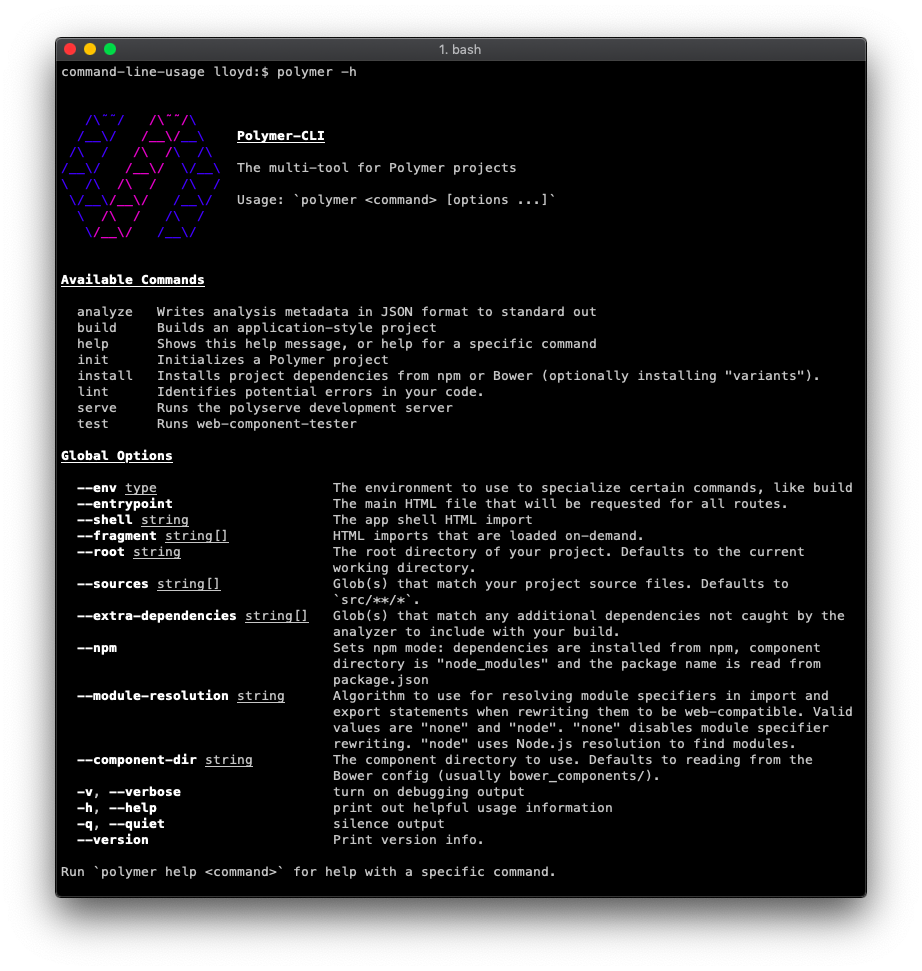command-line-args
v6.0.1
Published
A mature, feature-complete library to parse command-line options.
Downloads
11,248,173
Maintainers
Readme
Upgraders, please read the release notes
command-line-args
A mature, feature-complete library to parse command-line options.
Synopsis
You can set options using the main notation standards (learn more). These commands are all equivalent, setting the same values:
$ example --verbose --timeout=1000 --src one.js --src two.js
$ example --verbose --timeout 1000 --src one.js two.js
$ example -vt 1000 --src one.js two.js
$ example -vt 1000 one.js two.jsTo access the values, first create a list of option definitions describing the options your application accepts. The type property is a setter function (the value supplied is passed through this), giving you full control over the value received.
const optionDefinitions = [
{ name: 'verbose', alias: 'v', type: Boolean },
{ name: 'src', type: String, multiple: true, defaultOption: true },
{ name: 'timeout', alias: 't', type: Number }
]Next, parse the options using commandLineArgs():
import commandLineArgs from 'command-line-args'
const options = commandLineArgs(optionDefinitions)options now looks like this:
{
src: [
'one.js',
'two.js'
],
verbose: true,
timeout: 1000
}Advanced usage
Beside the above typical usage, you can configure command-line-args to accept more advanced syntax forms.
Command-based syntax (git style) in the form:
$ executable <command> [options]For example.
$ git commit --squash -m "This is my commit message"Command and sub-command syntax (docker style) in the form:
$ executable <command> [options] <sub-command> [options]For example.
$ docker run --detached --image centos bash -c yum install -y httpd
Usage guide generation
A usage guide (typically printed when --help is set) can be generated using command-line-usage. See the examples below and read the documentation for instructions how to create them.
A typical usage guide example.

The polymer-cli usage guide is a good real-life example.

Further Reading
There is plenty more to learn, please see the wiki for examples and documentation.
Install
$ npm install command-line-args --save© 2014-24 Lloyd Brookes <opensource@75lb.com>.
Documented by jsdoc-to-markdown.

